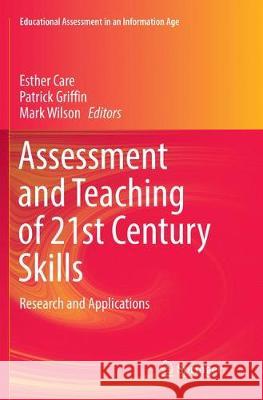Assessment and Teaching of 21st Century Skills: Research and Applications » książka
topmenu
Assessment and Teaching of 21st Century Skills: Research and Applications
ISBN-13: 9783319880082 / Angielski / Miękka / 2018 / 276 str.
Kategorie:
Kategorie BISAC:
Wydawca:
Springer
Seria wydawnicza:
Język:
Angielski
ISBN-13:
9783319880082
Rok wydania:
2018
Wydanie:
Softcover Repri
Ilość stron:
276
Waga:
0.43 kg
Wymiary:
15.6 x 23.4 x 2.4
Oprawa:
Miękka
Wolumenów:
01











